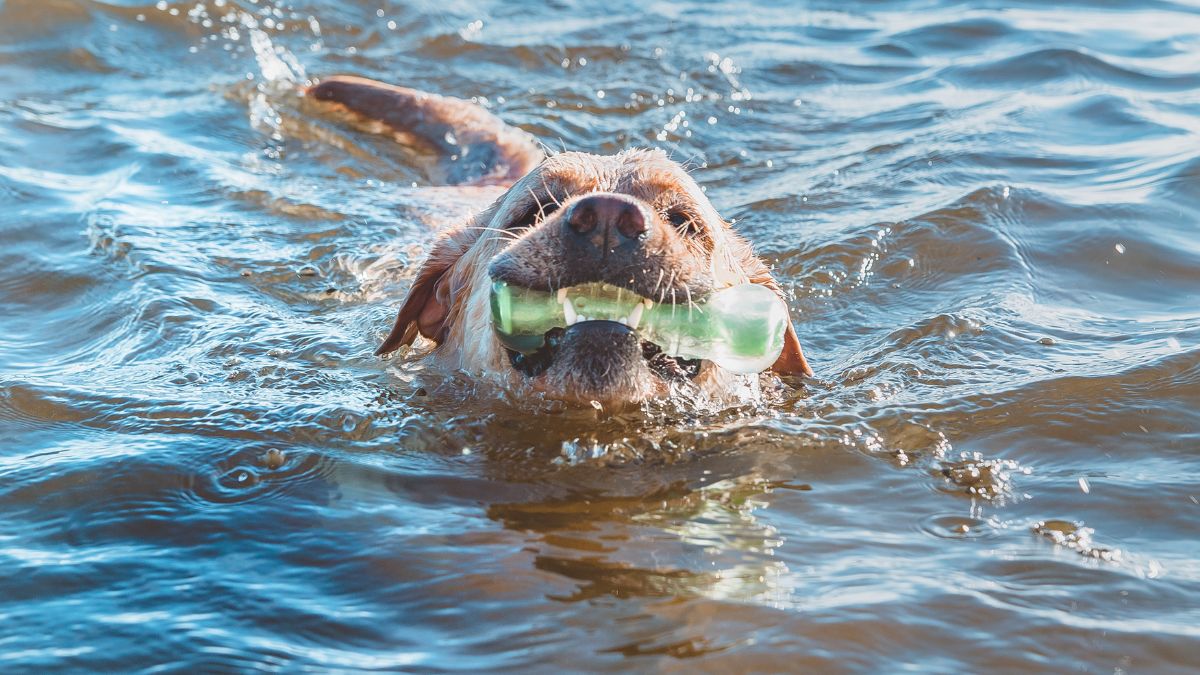- By Bornika Das
- Tue, 08 Jul 2025 10:43 AM (IST)
- Source:JND
Labrador Adoption: Labrador Retrievers are adorable pets to bring home for being energetic and loyal among the most popular breeds in the world. Their playful personality and affectionate nature make them a top choice for families to adopt. Along with much love and fun, labs bring their own set of challenges. Behind those adorable eyes and floppy ears, they require commitment, understanding, and a lifestyle that matches their needs. Labrador puppies are known for their friendly temperament, high intelligence and boundless energy and are a go-to choice among families, first-time dog owners and active individuals alike. However, for every future Labrador owner, it is important to understand certain crucial things for Labrador puppy care.
Bringing a Labrador puppy home is not just about cuddles and play, but to being prepared for a long-term responsibility. Before you fall for a Labrador’s puppy-dog eyes, it is important for you to need to know certain things to enjoy life with the adorable creature. From Labrador puppy training to Labrador puppy health, there are a lot of things to consider to ensure a happy life for both the puppy and the owner. Here are the eight essential things that you should know before adopting a Labrador puppy.
Things You Must Know Before Bringing Your Lab Home
Labradors Need Exercise Every Day
Labradors are packed with energy and require at least 60-90 minutes of daily exercise. It must always be remembered that a tired Lab is a happy Lab. Unlike the other labs, they will love long walks, runs, hikes, swimming sessions and games. If Labradors don’t get their daily dose of physical activity, they can become restless, anxious and destructive, often chewing furniture or barking excessively. This breed is ideally suited for an active owner who can provide them with regular physical and mental engagement.
Labradors Are Natural Shedders
Labradors are year-round shedders, with two major shedding seasons, spring and fall. Be prepared for dog hair on the clothes, furniture, car seats and even in your food. Weekly brushing is not enough for this breed; they need to be brushed about 3-4 times a week. With Labs as pets, you can invest in a powerful vacuum for your home for regular cleaning. Their coat is easy to manage as compared to some long-haired breeds, but the volume of shedding can sometimes surprise the owners. Bathing them once a month with a coat-friendly shampoo may help minimise the shedding.
ALSO READ: Pet Obesity On The Rise: How Weight Gain In Cats And Dogs Is Turning Alarming And How To Prevent It?
Labs Are Extremely Friendly
Labradors are sweet, sociable, and people-loving. They usually get along with kids, other pets, and even strangers. This makes them one of the dog breeds for families. However, this also means they lack natural guarding instincts. If adopting a dog for protection or territorial alerts, Labs may not be an ideal choice. Their friendly nature makes them perfect therapy dogs, emotional support animals and companions for first-time dog owners. Their overexcitement can sometimes lead to jumping and licking if they're not trained at the early stages. Socialisation from a young age ensures that Labs channel their friendliness into calm behaviour.
Labradors Are Prone To Obesity
Labradors love food, so make sure you do not leave them unattended with food. This love for food makes them prone to obesity, a common issue, leading to joint pain, heart problems, and even a shorter lifespan. Portion control is extremely crucial for Labradors. Avoid overfeeding of treats or human food. Make use of slow feeds or food dispensing toys to control their habit of fast eating and promote mental stimulation. For a healthy Lab, combine a high-protein, low-fat diet with daily exercise.

Labradors Must Be Involved Into Doing Regular Exercises (Image Credits: Canva)
Training A Labrador Is Easy
Labradors are considered an intelligent, obedient and eager-to-please breed. This makes them one of the easiest breeds to train. Early training is essential, so start from the day the Lab is brought home. Focus on basic commands like sit, stay, come, and more. For easier and effective training, use positive reinforcement like treats, praise, toys and avoid harsh corrections. Lack of training can lead to habits like pulling on the leash, jumping or chewing.
Labradors Need Mental Stimulation
Only physical exercises are not enough for Labs. They're highly intelligent dogs who crave mental challenges. Without brain stimulation, Labs can become bored, anxious and destructive. New tricks, hide-and-seek games, scent trails and interactive toys are some of the great ways to keep their minds sharp and active. Teach them new commands or involve them in household activities like fetching newspapers or closing doors, which can give them a job to do.
ALSO READ: 5 Housewarming Gifts You Should Absolutely Avoid Giving; Clocks, Pets, And More
Common Health Problems In Labradors
Before adopting, it is important to be aware of the common health risks that Labs might suffer from. Labs are prone to hip and elbow dysplasia, progressive retinal atrophy, ear infections and obesity-related diseases. They love swimming and their floppy ears make ear cleaning a necessity. Annual vet checkups, vaccinations and early screening for joint issues are vital. When young, be cautious with excessive jumping or stair climbing, as their joints are still developing. You can also provide joint supplements to your pet after consulting the vet and always watch for signs of pain or limping.
Labrador Puppies Grow Fast
The Labrador puppy grows rapidly. What may seem like a cuddly 5kg pup can become a 40kg adult in just 12 months. While Labradors are teething, they'll chew on everything, shoes, furniture, wire and even hands. Moreover, it is essential to puppy-proof your home before they arrive. Provide safe, durable chew toys to redirect their chewing instinct. Frozen carrots, rubber toys and rope chews work well.

